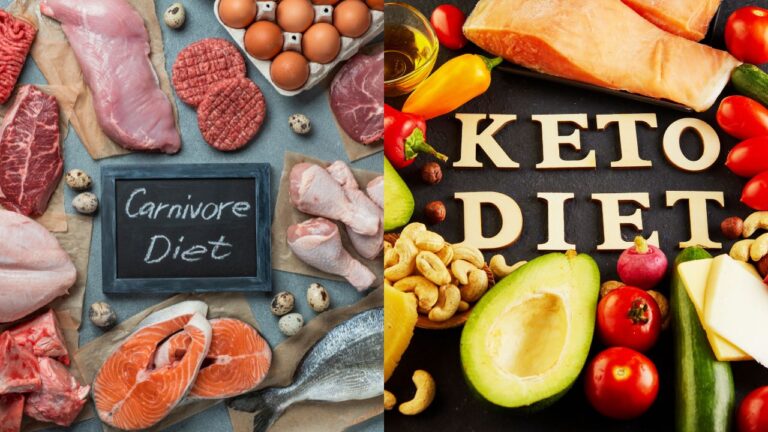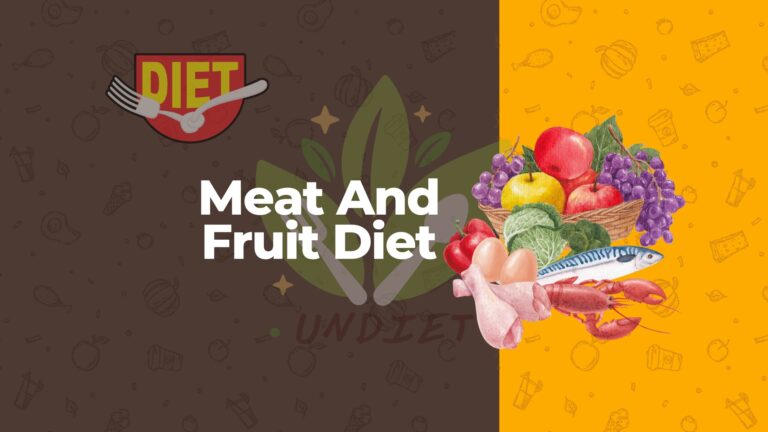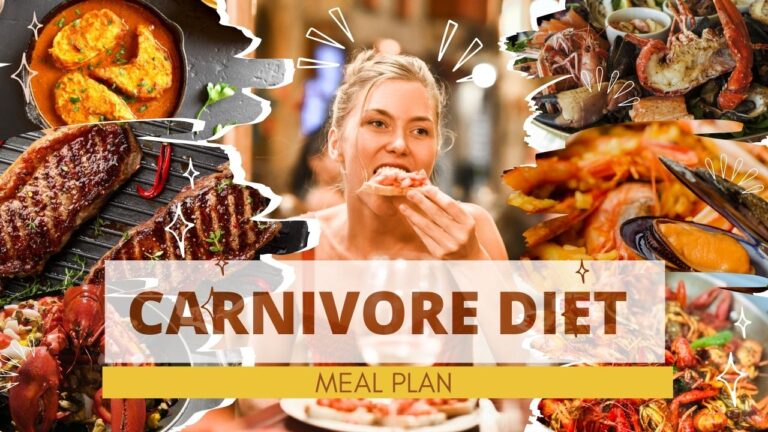Carnivore Diet Food List: What You Need to Know
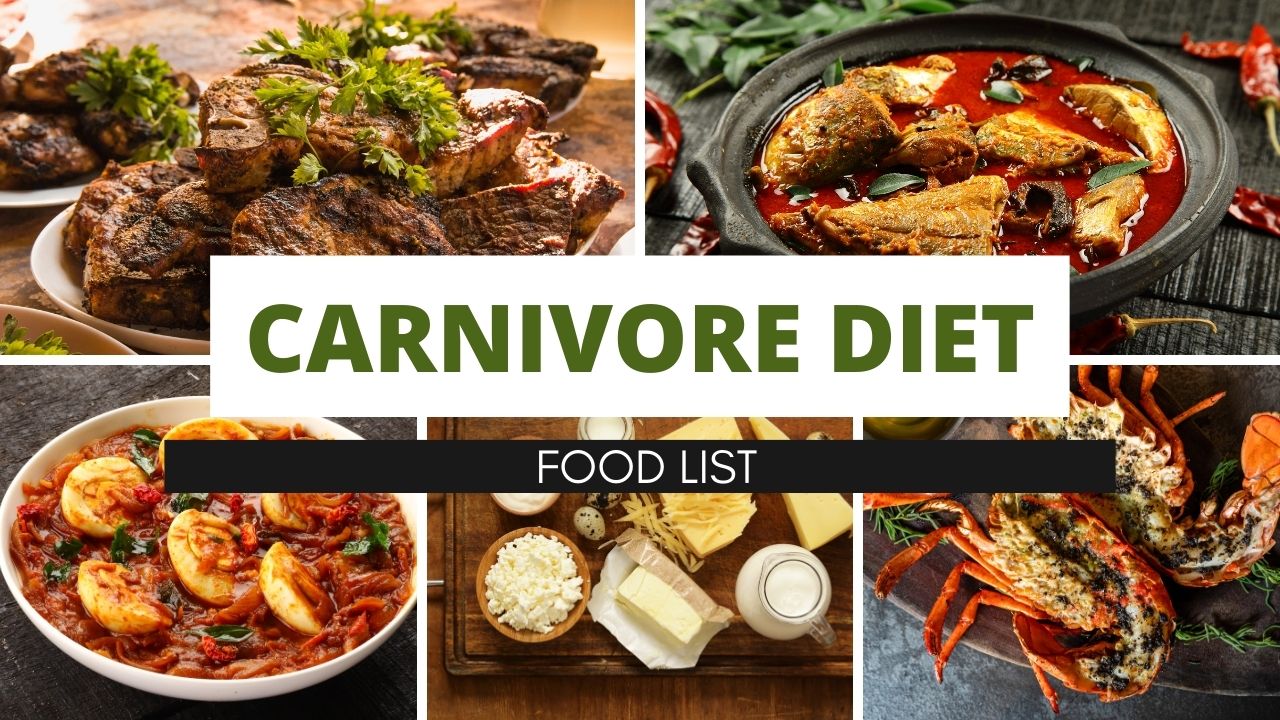
The Carnivore Diet Food List has drawn a lot of attention recently in the area of diets and nutrition. This unusual dietary strategy emphasizes only meals made from animals and promises a number of health advantages. This thorough guide will provide you with a thorough overview of the foods you can include in your carnivore journey if you’re thinking about adopting the carnivore diet or are just interested in what it entails.
Introduction
Brief Description of the Carnivore Diet Food List
The all-meat diet, commonly referred to as the carnivore diet, is a nutritional strategy that has grown in popularity recently. The carnivore diet is distinct from other diets in that it promotes the eating of nearly solely animal-based foods while excluding all plant-based foods, in contrast to most diets that emphasize a balance of proteins, carbs, and fats. We shall examine some of the alleged health advantages of this diet later in this blog.
The Value of Knowing the Carnivore Diet Food List
It’s essential to have a thorough understanding of what you can and cannot consume if you want to properly follow the carnivore diet and enjoy its potential benefits. This diet is extremely limited, and deviating from the list of permitted foods might have serious repercussions. Making informed decisions and avoiding potential traps is ensured by being aware of the nuances of the carnivore diet food list.
The Blog’s Objective: Detailed Examination of the Carnivore Diet Food List
This blog’s main objective is to thoroughly explore the carnivore diet food list. We’ll break down the different food groups that are permitted on this diet, go over their nutritional advantages, and give you some insight into any difficulties you might run into. You will have a comprehensive idea of what you can include in your carnivore diet and how to effectively use this nutritional approach by the time you finish reading this article. This information will be a useful tool to help you make educated decisions about your diet, whether you’re thinking about attempting the carnivore diet or are just curious about its ideas.
What is the Carnivore Diet?
The Carnivore Diet: Definition and Basic Principles
The carnivore diet is a rigorous focus on animal-based meals and is distinguished by its extreme simplicity. All plant-based foods, such as grains, legumes, fruits, and vegetables, must be avoided. Instead, those who follow the carnivore diet mostly eat meat, seafood, and items made from animals, like eggs and dairy (although the inclusion of dairy is still up for debate). The main idea behind this diet is to cut out all carbs and get all of your nutrients from animal sources.
Dietary Development and Historical Context
The idea of an all-meat diet has historical precedent, as evidenced by several historical reports and similar dietary practices in indigenous societies. Through the activities of people like Dr. Shawn Baker and Dr. Paul Saladino, who publicized and promoted its advantages, the carnivore diet gained recognition in the modern era. Although historically practiced by some tribes, the carnivore diet has recently developed into a more organized and researched way of eating.
Health Claims and Disputations
Intense discussions over the carnivore diet have taken place in the medical and nutritional areas. Its proponents contend that it can bring about several positive health outcomes, including weight loss, increased mental clarity, and relief from certain medical illnesses like autoimmune disorders and digestive issues. The controversy surrounding the diet must be acknowledged, though, as do worries about vitamin deficits, a lack of fiber, and potential long-term health hazards.
The severe nature of the carnivorous diet raises legitimate concerns about its sustainability and safety, and researchers are still investigating its effects on health. Although anecdotal evidence suggests that the carnivore diet has helped some people, it is important to approach it cautiously, especially given how drastically it differs from traditional nutritional advice. The exact foods that are permitted on this diet will be covered in detail, and the benefits and hazards of adhering to its tight guidelines will be discussed in the parts that follow.
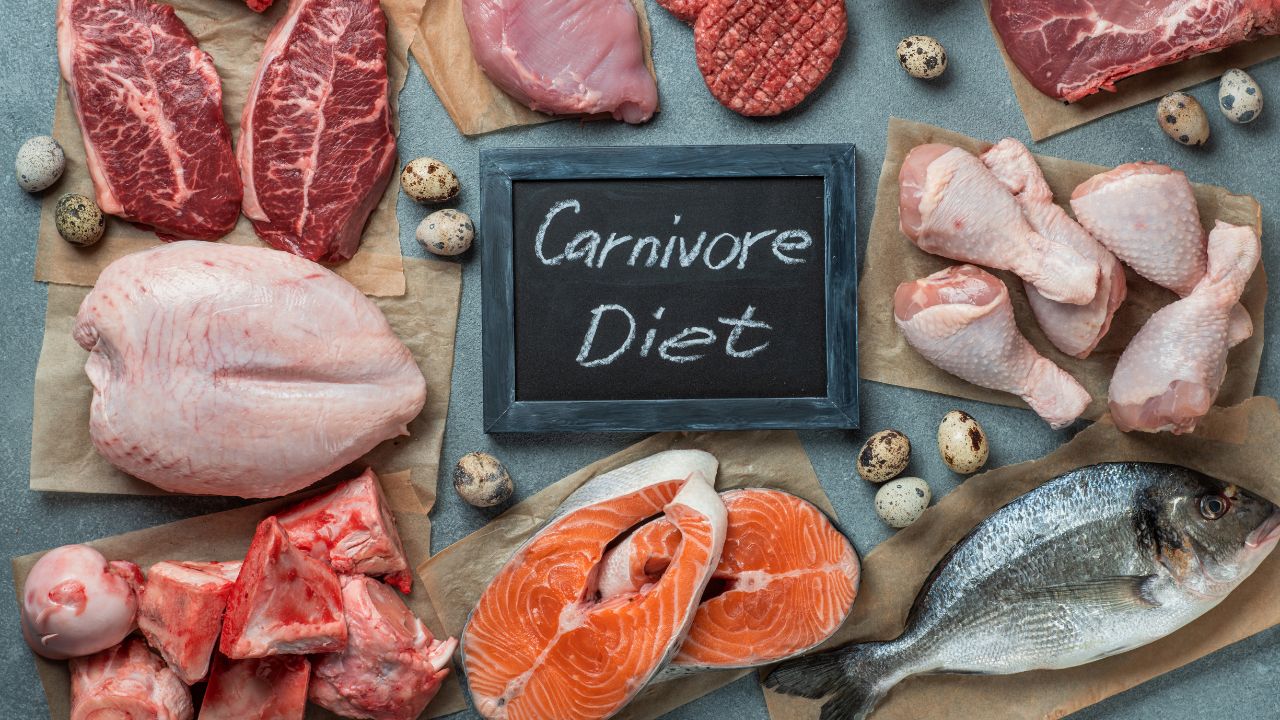
The Carnivore Diet Food List
Meat-Based Foods
Red Meat:
- The primary source of protein, vitamins, and minerals in the diet of carnivores is beef, which is a staple in this group. Ribeye and sirloin cuts are popular selections.
- Lamb: Lamb is a nutrient-rich, meat-alternative to beef with a distinctive flavor.
- Pork: Known for its flavor and versatility, pork offers cuts including chops and bacon.
Poultry:
- Chicken: A lean protein source that is frequently eaten with the skin on for extra fat.
- Turkey: Turkey, which has less fat than other meats, can be included in the carnivore diet for variety.
- Duck: Duck meat offers variety to the diet and is renowned for its rich flavor and healthful fats.
Organ Meats:
- Liver: The liver is renowned for its high nutrient density and is a nutritional powerhouse, rich in vitamins like A and B12.
- Heart meat has a distinct flavor and is a good source of protein, B vitamins, and iron.
- Kidneys: Kidneys, which are rich in minerals like selenium, help the carnivore diet contain a range of nutrients.
Seafood
Fish:
- Salmon: Salmon is praised for the heart-healthy omega-3 fatty acids in it.
- Tuna is a lean, high-protein seafood that is appropriate for carnivorous diets.
- Cod: A white fish prized for its mild flavor and adaptability, cod.
Shellfish:
- Shrimp is a well-liked seafood option because it is low in calories and high in protein.
- Crab: Crab meat is a delicacy known for its sweetness and versatility in a variety of cuisines.
- Lobster: A delicacy with a unique flavor and texture, lobster is available.
Animal Fats:
- Butter: Butter, a source of saturated fat, improves the flavor of dishes for carnivores.
- Lard: Made from swine fat, lard is a common cooking fat used in a variety of dishes.
- Tallow: A rendered beef fat used in frying and cooking.
Eggs:
- Nutritional Advantages: Eggs are a nutritional powerhouse since they include a high level of protein, as well as vital minerals, vitamins, and choline (including vitamin B12).
- How to Cook Eggs on a Carnivore Diet: Eggs can be prepared in several different ways, including boiling, frying in animal fats, and making omelets.
Dairy (Controversial)
- Cheese: Some carnivore diets use cheese in their diet, especially high-fat versions like cheddar or gouda, despite the controversy surrounding its plant-based origins (from milk).
- Heavy Cream: Another contentious dairy product, heavy cream is included by some because of its substantial fat content, though opinions on this matter vary across supporters.
The carnivore diet has individual variances, therefore it’s important to speak with a doctor before starting such a stringent diet to make sure it supports your needs and goals in terms of health. Optimizing nutrient intake in the carnivore diet requires maintaining variation within these food groups.
Foods to Avoid
Plant-Based Foods
- Fruits: Due to their high carbohydrate content, fruits are completely prohibited from the carnivore diet. Fruits are forbidden for followers of this diet, even though they are normally regarded as nutritious.
- Vegetables: The carnivorous diet excludes all vegetables, including starchy tubers and leafy greens. This exclusion covers all types of veggies made from plants.
- Grains: The carnivore diet forbids the consumption of grains such as wheat, rice, oats, and others. This does away with basic foods like rice, pasta, and bread.
Sweeteners and Sugars
- Sugar: Due to its high carbohydrate content, refined sugar is a major no-no for carnivores. This includes all added sugars in their various forms, including white and brown sugar.
- Honey: Honey is a natural sweetener, but it still contains sugar, so it is not permitted on this diet.
- Artificial Sweeteners: Despite having no calories, artificial sweeteners should be avoided. Popular choices including aspartame, saccharin, and sucralose are included in this.
Prepared Foods
- Packaged Snacks: The carnivore diet is incompatible with snack items like chips, crackers, and pretzels, which are frequently loaded with grains and additives.
- Fast Food: This diet does not include fast food options, which often contain processed carbohydrates and sugars.
- Highly Processed Meats: The carnivore diet encourages the intake of meat, but it emphasizes entire, unprocessed portions of meat. Hot dogs and deli meats are examples of highly processed meat items that should be avoided.
The carnivore diet’s success depends on adhering to the list of foods to stay away from because departing from these restrictions might undermine the diet’s guiding principles and possible advantages. To retain sufficient nutrition while following this diet plan, it is crucial to swap out these forbidden foods with those that are allowed on the carnivore diet food list.
Nutritional Considerations
Protein Intake
- Getting the Protein a Carnivore Needs: The main component of the carnivore diet is protein, which supplies the necessary amino acids for healthy muscles and general well-being. For this diet to be successful, it is essential to comprehend how to meet your protein needs. We’ll talk about the ideal protein consumption and methods to make sure you get enough to thrive.
- Variability in Protein Sources: Although meat is the main source of protein, it’s crucial to recognize that different animal diets differ in terms of protein quality and content. We’ll go over the advantages of using a range of protein sources in your diet as a carnivore as well as how they affect your nutritional profile.
Micronutrients
- Possibilities for Deficiencies and How to Address Them: The stringent restrictions on plant items in the Carnivore Diet Food List may result in vitamin deficits. We’ll examine methods for resolving these deficiencies through dietary changes or supplements, guaranteeing a well-rounded and balanced diet, as well as inadequacies in vitamins, minerals, and fiber.
Ketosis and Fats
- Fats’ Place in the Diet: Fats are an important part of the diet of carnivores because they give them energy and help them feel full. We’ll talk about the value of fats in a Carnivore Diet Food List, as well as the advantages of consuming natural animal fats and how they affect overall nutrition.
- Getting into and Keeping Ketosis: The ketosis metabolic state, in which the body burns fat for energy, is frequently linked to the carnivorous diet. If you decide to include this component of your dietary goals, we’ll go through how the carnivorous diet and ketosis relate as well as practical advice for achieving and sustaining ketosis.
For the Carnivore Diet Food List to be most beneficial for your health and well-being, you must navigate these nutritional issues. When you follow this particular dietary approach, knowing how much protein to consume, taking care of any potential micronutrient deficiencies, and accepting the function of fats and ketosis will give you the power to make decisions that are in line with your personal health goals.
Health Benefits and Risks
Potential Health Advantages of a Carnivore Diet Food List
- Loss of Weight: The ability of the carnivorous diet to promote weight loss is one of its frequently cited advantages. We’ll examine the methods by which this diet may cause weight loss, including the function of ketosis and calorie restriction.
- Improved Digestion: Some people claim that a carnivorous diet leads to better digestive health and fewer gastrointestinal problems. We’ll examine the potential drivers of these digestive enhancements as well as prospective beneficiaries.
- Mental Clarity: Advocates of carnivorous diets frequently mention improved attention and mental clarity. We’ll talk about the possible connections between nutrition and cognitive performance and look at how this diet might affect mental health.
Potential Dangers and Issues
- Nutritional deficits: A rigorous ban on plant-based foods may result in nutrient deficits. We’ll look at the vitamins and minerals that could be in danger and talk about ways to supplement or change your diet to prevent deficiencies.
- Lack of Fiber: Many nutrition experts are concerned about the lack of dietary fiber. We’ll look at how the carnivorous diet might affect gut health and talk about other approaches to keep your digestive system in good shape.
- Long-Term Health Implications: The sustainability and safety of the carnivorous diet are called into doubt by long-term adherence to it. We’ll look into the long-term possible effects on health, including issues with heart health, bone health, and general well-being.
Anyone considering or implementing the carnivore diet must be aware of both the possible advantages and disadvantages of this nutritional strategy. To make educated choices regarding your long-term health and nutrition, it’s important to assess the potential benefits against the hazards, even though some people may have great results.
Transitioning to the Carnivore Diet
Tips for a Smooth Transition
- Gradual Progression: Making the switch to a carnivore diet might be difficult. To reduce discomfort, start by progressively cutting non-carnivorous items out of your diet.
- Meal Planning: Make sure you have a range of animal-based items on hand by planning your meals to prevent feeling deprived.
- Drink plenty of water to stay hydrated because a decrease in plant-based foods may cause you to consume less fluids overall.
- Keep an eye on your health: During the changeover, pay attention to your energy levels, digestion, and general health.
Typical Obstacles and How to Surmount Them
- Carb Withdrawal: Some people experience the effects of carb withdrawal. Keeping hydrated and getting adequate salt in your diet can assist with these symptoms.
- Cravings: Non-carnivorous food cravings are frequent. Cravings can be controlled by locating satisfying carnivore-friendly substitutes and engaging in mindfulness exercises.
- Social Pressures: Navigating social situations can be difficult. To get their support and understanding, let friends and family know what you eat.
- Digestive Changes: Transitioning to a diet high in meat might cause changes in the digestive system. Try out several meat and fat varieties to see which ones are the best for your health.
- Nutritional Issues: Take care of potential nutrient deficits by consuming a variety of animal products or by seeking the advice of a healthcare practitioner.
Consulting a Healthcare Practitioner
- Health Assessment: Before starting the carnivore diet, speak with a healthcare practitioner to evaluate your present state of health and ascertain whether this diet is appropriate for your unique needs and objectives.
- Consistent Check-Ins: While on the diet, keep seeing a doctor regularly to have your health and nutritional status checked.
- Supplementation: To prevent any nutrient deficits, your healthcare professional may, if necessary, suggest the right supplements.
- Individual Guidance: A healthcare professional can offer personalized advice to make sure the carnivore diet is suited to your particular health needs.
Planning and taking foreseeable difficulties into account is essential when making the switch to a carnivorous diet. You can ease the transition and optimize the potential advantages of this nutritional strategy while lowering risks by adhering to these suggestions, resolving typical roadblocks, and speaking with a healthcare provider.
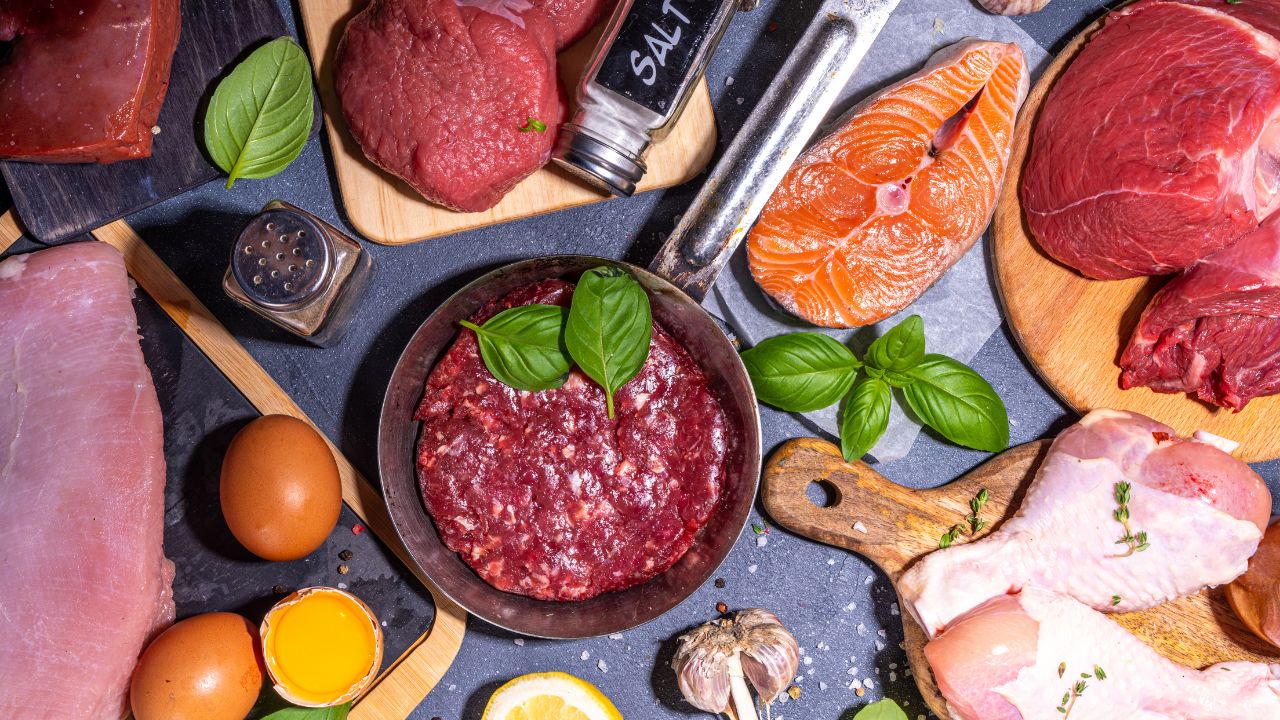
Conclusion
Recap of the list of foods for a Carnivore Diet Food List
We’ve studied the food list that characterizes the carnivore diet in this in-depth analysis of this distinctive nutritional philosophy. We’ve unearthed the variety of items that may be enjoyed while following a carnivore diet, from delicious pieces of red meat to seafood specialties and animal fats. The key to properly navigating this limited regimen is to comprehend this meal list.
Support for Making Knowledgeable Dietary Decisions
It’s important to make decisions based on information that is in line with your personal preferences and health goals as you contemplate the carnivore diet or any other dietary plan. You now know necessary to analyze the potential advantages and disadvantages of the carnivore diet to make choices that will advance your well-being.
Emphasis on the Value of Personal Preferences and Health
We cannot emphasize enough how important it is to adjust your food choices to your own health requirements and personal preferences. The carnivore diet may be beneficial for some people, but it may not be right for everyone. Before starting a restrictive diet, it is a good idea to speak with a healthcare provider to be sure your choices are in line with your particular health profile.
In summary, the carnivore diet is a unique method of nutrition that goes against accepted dietary norms. You may decide whether this diet is in line with your goals by comprehending the food list, being aware of potential advantages and hazards, and giving priority to your unique health and preferences. Always seek out expert advice when making dietary changes because the road to good health can be varied.
Frequently Asked Questions for Carnivore Diet Food List
Can I use dairy products while following a carnivorous diet food list?
The use of dairy in carnivorous diets is debatable. Some people choose to stick solely to animal meats and fats, while others include high-fat dairy products like cheese and heavy cream.
Does the carnivore diet food list have any room for plant-based foods?
The carnivore diet does not include any plant-based meals, such as fruits, vegetables, or grains, and instead focuses only on items produced by animals.
On a carnivorous diet food list, can I have spices and seasonings?
Since the majority of condiments and spices are plant-based, they are forbidden on the carnivore diet. Some people prefer to utilize minimal amounts of condiments made from animals, pepper, and salt.
On the carnivore diet food list, are any other beverages permitted than water?
The main beverage consumed by carnivores is water. Some people frequently include plain coffee and tea; however, this is needed.
How can I verify that my carnivorous diet food list is providing me with enough nutrients?
Aim for variety within the permitted food groups, think about supplements, and seek out individualized advice from a healthcare professional to treat potential nutrient shortages.

